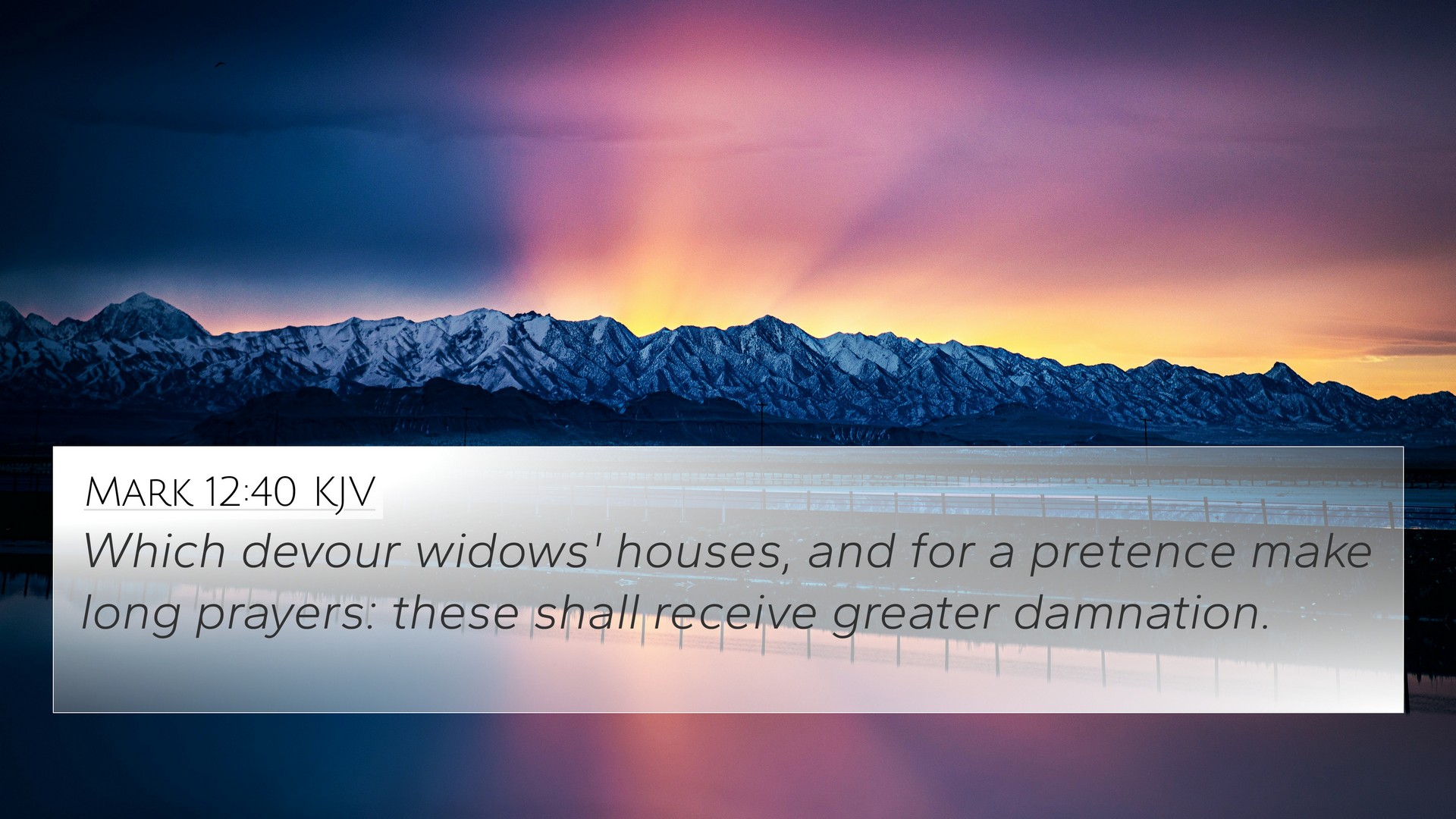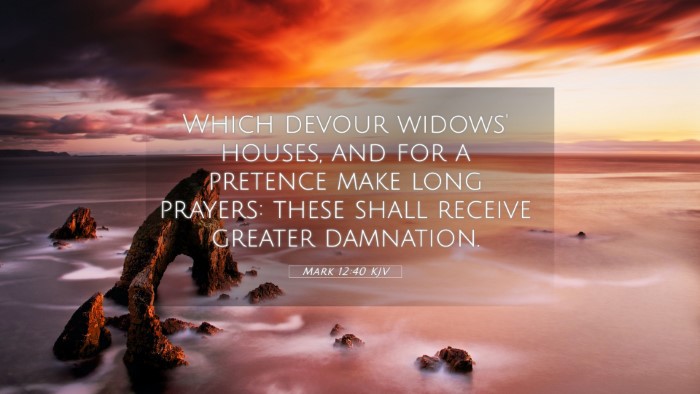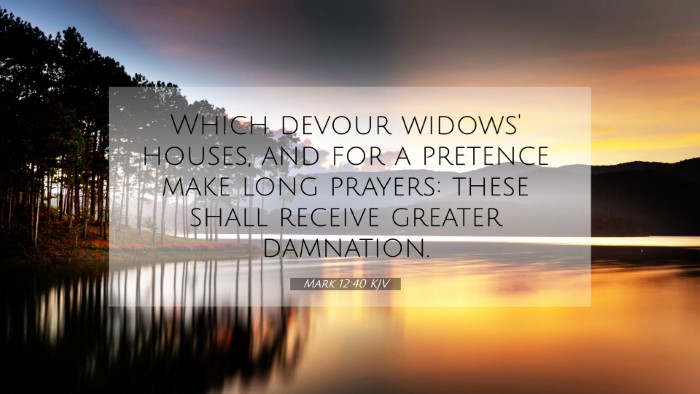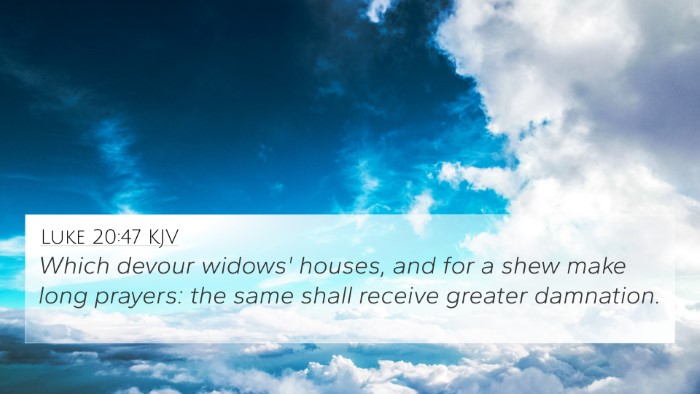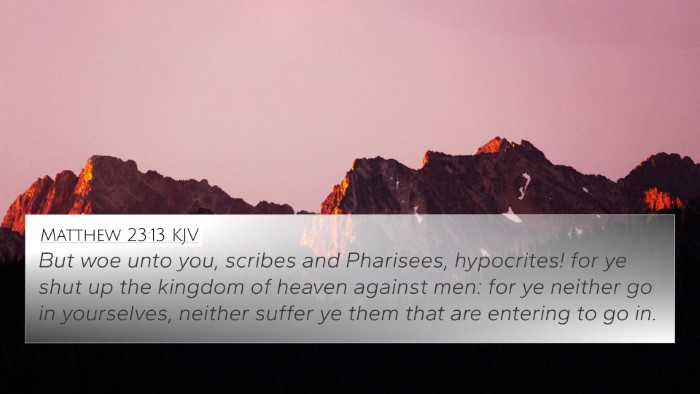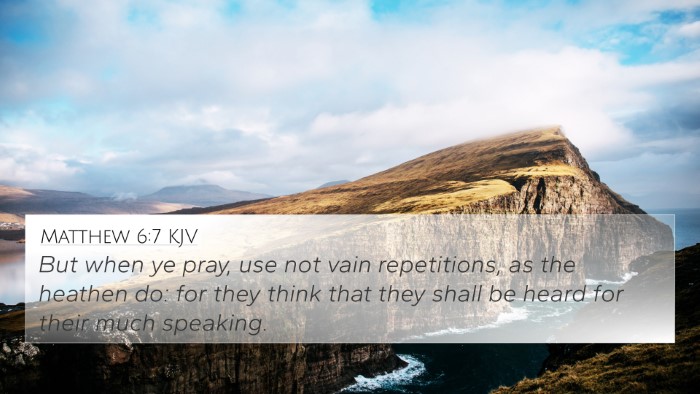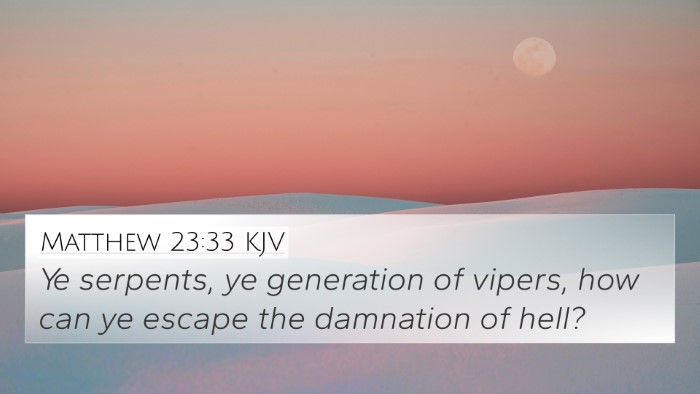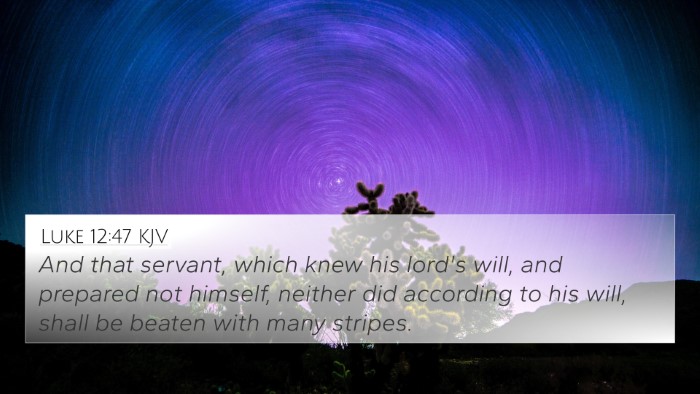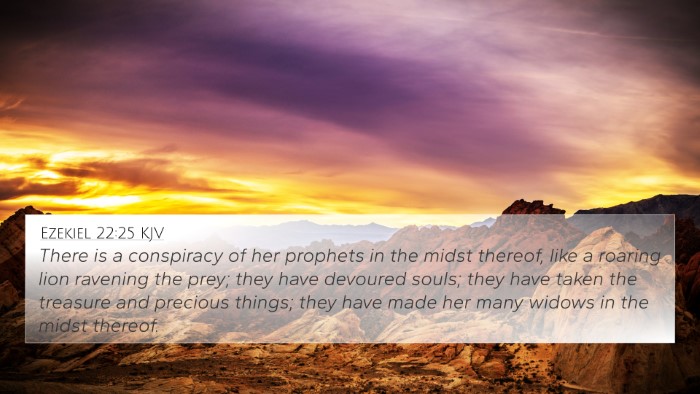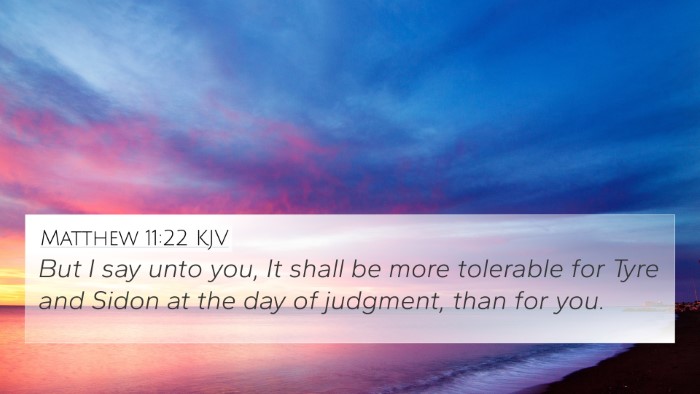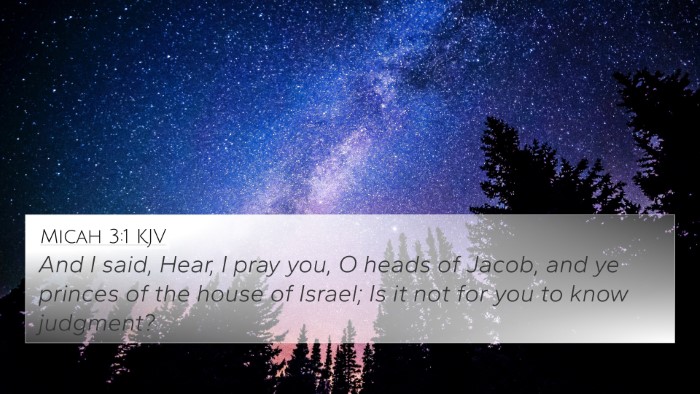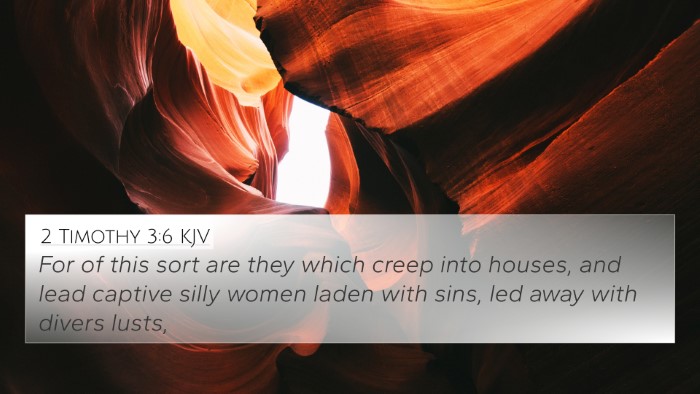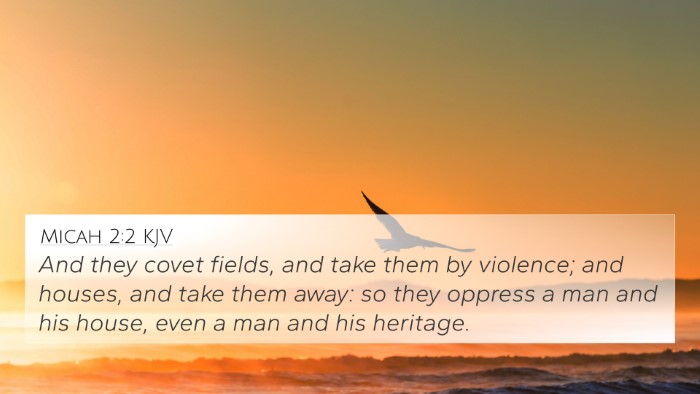Understanding Mark 12:40
Mark 12:40 reads: "Which devour widows' houses, and for a pretence make long prayers: these shall receive greater damnation."
This verse serves as a stern warning about the behavior of certain religious leaders during Jesus' time. It highlights the hypocrisy and exploitation of the vulnerable, specifically widows, by those in positions of authority. Let's delve deeper into its meaning, drawing from public domain commentaries to provide a comprehensive understanding.
Context and Background
In this passage, Jesus is speaking to the people about the religious leaders—the scribes—who hold significant authority in Jewish culture. The context is essential to grasp the gravity of the message, as it emphasizes the corrupt practices of leaders who, instead of serving, unjustly enrich themselves at the expense of widows, who were among the most vulnerable groups in society.
Commentary Insights
Matthew Henry's Commentary
Matthew Henry emphasizes the moral corruption of the scribes, noting their exploitation of widows for personal gain. He points out that these leaders cloak their greed in piety, making long prayers that serve as a facade for their wrongful actions. This hypocrisy does not go unnoticed by God, and they are warned of the greater condemnation they will face.
Albert Barnes' Commentary
Albert Barnes elaborates on the phrase "devour widows' houses," interpreting it as a metaphor for the predatory behavior of these leaders. He criticizes their long prayers, which, although seem pious, are mere pretense meant to cover up their true intentions. Barnes underscores the severity of their judgment, suggesting that such actions will lead to a harsher punishment in the divine order, indicating God's justice against those who misuse their power.
Adam Clarke's Commentary
Adam Clarke provides insights into the socio-religious context of the time, emphasizing that widowhood left many women destitute, making them easy prey for unscrupulous religious authorities. Clarke suggests that the scribes’ actions served to break God's commandments, as they took advantage of the helpless while presenting themselves outwardly as righteous leaders. He outlines that their fate involves greater condemnation due to their moral failings.
Thematic Connections
Mark 12:40 establishes key themes of hypocrisy, exploitation, and divine judgment. These themes resonate throughout the Scriptures and can be cross-referenced with several other verses that tackle similar ideas.
- Luke 20:47 - "Which devour widows' houses, and for a show make long prayers: the same shall receive greater damnation." This verse mirrors the teaching found in Mark and supports the condemnation of hypocritical religious leaders.
- Matthew 23:14 - “Woe unto you, scribes and Pharisees, hypocrites! For ye devour widows' houses, and for a pretence make long prayers.” This reinforces the message of exploitation and false piety.
- James 1:27 - "Pure religion and undefiled before God and the Father is this, To visit the fatherless and widows in their affliction." This highlights the proper treatment of the vulnerable as a core principle of true religion, contrasting the actions of the scribes.
- Isaiah 10:1-2 - "Woe unto them that decree unrighteous decrees, and that write grievousness which they have prescribed; To turn aside the needy from judgment, and to take away the right from the poor." This passage expresses God's specific condemnation of those who pervert justice for the marginalized.
- Lamentations 3:34-36 - "To crush under his feet all the prisoners of the earth, to turn aside the right of a man before the face of the Most High." This speaks to God's disapproval of injustice and the mistreatment of the helpless.
- Proverbs 22:22-23 - "Rob not the poor, because he is poor: neither oppress the afflicted in the gate: For the Lord will plead their cause, and spoil the soul of those that spoiled them." Again, it emphasizes justice and God's defense of the oppressed.
- Micah 3:1-3 - “And I said, Hear, I pray you, O heads of Jacob, and ye princes of the house of Israel; Is it not for you to know judgment? Who hate the good, and love the evil; who pluck off their skin from off them, and their flesh from off their bones.” This underscores the moral responsibility of leaders to care for their people rather than exploit them.
Applications and Reflections
The stark warning in Mark 12:40 serves as a reminder for all, particularly those in positions of authority, to examine their motives and actions. In modern application, we can consider how churches and religious institutions might sometimes exploit vulnerable populations instead of uplifting them.
Additionally, the verse invites believers to reflect on personal integrity, urging everyone to align their actions with genuine piety rather than mere appearances. The focus should be on serving and uplifting those in need, ensuring that we become advocates for justice rather than agents of exploitation.
Conclusion
Mark 12:40 is a powerful statement on the seriousness of exploiting the vulnerable under the guise of religion. By referencing both Old and New Testament scriptures, we gain a fuller understanding of the biblical view on justice, integrity, and the expectation placed upon leaders. In this way, this verse serves as a crucial reminder of how one's faith must manifest in genuine care for others, particularly the marginalized.
Further Study
For those seeking to explore more about the connections between Bible verses, tools for Bible cross-referencing can enhance your studies. A Bible reference resource or a Bible concordance may provide additional insights into how various scriptures relate to themes of justice and piety. Engaging in a cross-reference Bible study can reveal deep insights into the interconnectedness of the teachings in scripture, leading to a more profound understanding of God's word.
As you continue your exploration, consider how to implement these teachings in daily life, encouraging justice and integrity in all aspects of personal and communal living. May your journey in understanding scriptures lead you to greater truths and a closer walk with God.
